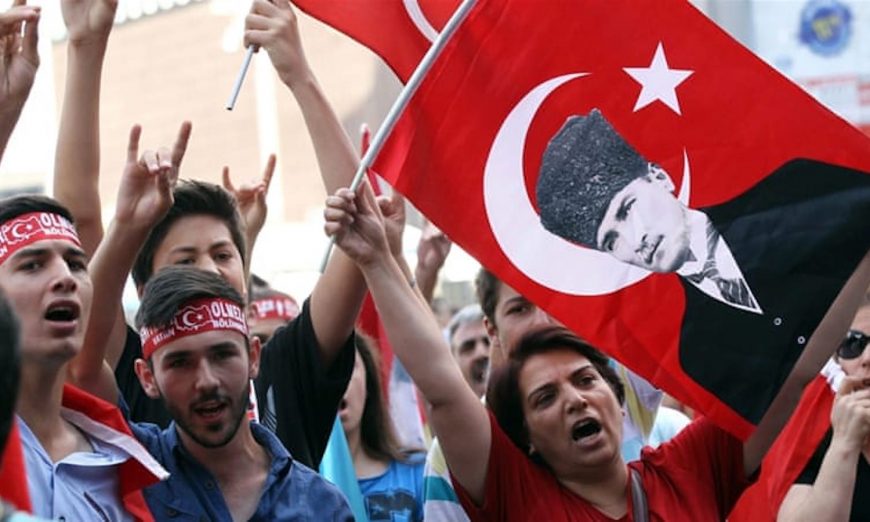IHSAN DAGI
15.03.2007- Today ‘s Zaman
In an article that appeared in the Daily Star, an Oxford University expert on Turkish foreign policy, Philip Robins, raised the question pf whether a Justice and Development Party (AK Party) government in its second term might “seek serious Islamist-oriented policy revisions” in its foreign policy. Such an expectation wrongly assumes that the Kemalist establishment is still committed to a Western-modeled Turkey and thus that alternative political movements, including the AK Party, would seek a revision of this objective. The truth is quite the opposite. While the Kemalists have been moving away from the West in recent years, the AK Party, with the support of the Islamic-conservative periphery, has been trying to anchor Turkey in the European Union.
There are reasons for these changes in position, the details of which I shall not dwell on now. Suffice to say that at this stage of development the Kemalists can see that further progress along the road to Westernization will end their hegemonic position in Turkey. They think so because the “logical end”of Westernization today is democratization. But for the Kemalists,Westernization was conceived as an instrument of control over “peripheral forces” and as a discourse that justified their, not the people’s, “right to rule.” Realizing that Westernization in the context of the EU membership process foremost requires a democratic regime, the Kemalists turned away from the idea and ideal of Westernization and started to oppose the terms of membership as outlined by the EU.
In analyzing Turkish politics and foreign policy we need to see this recent”repositioning” of domestic actors. It would be a grave mistake to think that the Kemalists are still proponents of a Western-oriented Turkey or foreign policy line. They openly express their great disappointment with modern political values like democracy, human rights and the rule of law. Many Kemalists question the wisdom and virtue of a democracy that has brought a”pro-Islamist” party to power. They are also content with the idea of human rights that is “exploited” by the Kurdish separatists and are uncomfortable with the notion of the rule of law that limits their freedom of (unlawful) action.
Anti-Western sentiments are greatest in the traditional strongholds of the Kemalists within the state, most notably the military and the judiciary. The fierce anti-Western imagery and opinions expressed in the public statements of some retired generals would rival that of the North Koreans or Iranians. Just afew days ago a retired general responsible for coordinating anti-terror measures with a US counterpart said bluntly in a public speech: “Goddamn the European Union.” Take note, he is a “moderate.”
In the political field the Republican People’s Party (CHP) can be labeled as the political representation of the Kemalist line. Who can seriously claim that the CHP is now a pro-Western political party? The CHP leaders opposed the terms of negotiations with the EU and rejected settlement in Cyprus along the lines of the Annan plan. The commitment of the CHP to the democratic rules of the game is also doubtful, given the stance of its leaders, who seem to rely on the intervention in political arena of “dynamic forces” — for which read “armed forces” — rather than playing the democracy game to get to power. With this they do not even seem to agree upon the most basic principle of democracy,which is the change of power via the ballot box.
In brief, references to the “Islamist agenda” of the AK Party explain neither Turkish politics nor foreign policy. To confuse the AK Party under the leadership of Prime Minister Recep Tayyip Erdoğan with that of the Welfare Party (RP) of Necmettin Erbakan would mean missing economic, social and political changes in recent years that led to the transformation of Islamic political identity. And assuming that the Kemalists, within the state apparatus or outside, are still committed to a Western-modeled Turkey and Western-orientated foreign policy does not correspond to the realities on the ground. “Pro-Western Kemalists” are now no more than a matter of nostalgia.

